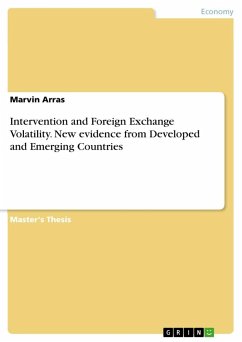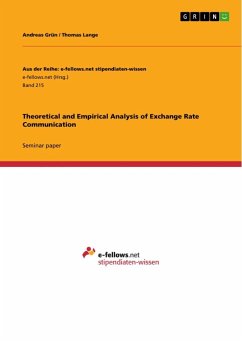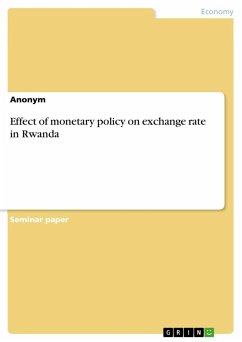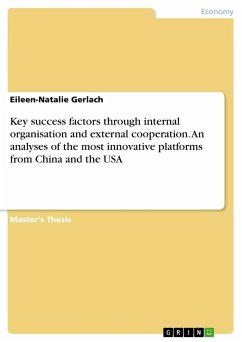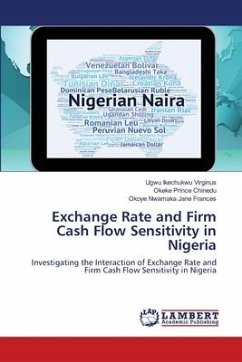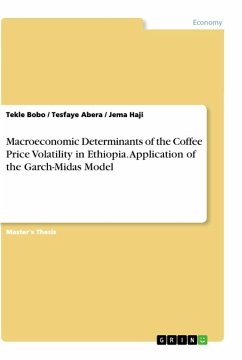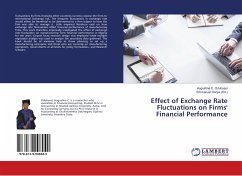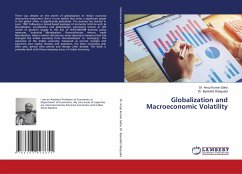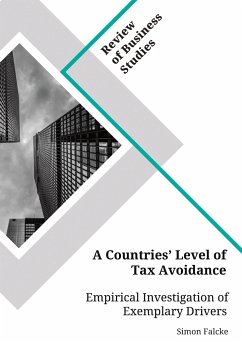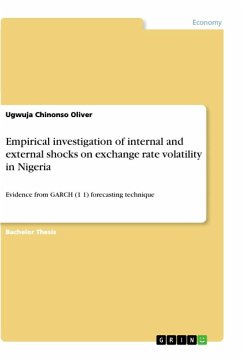
Empirical investigation of internal and external shocks on exchange rate volatility in Nigeria
Evidence from GARCH (1 1) forecasting technique

PAYBACK Punkte
0 °P sammeln!
Bachelor Thesis from the year 2017 in the subject Economics - Case Scenarios, grade: 2.1, University of Nigeria, course: ECONOMICS, language: English, abstract: The embracement of the International monetary funds' (IMF) structural adjustment programme (SAP) in 1986 brought the Bretton-Woods system which marked a period of the largest experiment of the pegged exchange rate regimes in the post-World War II era to its knees. Ever since then, there has been a recoded high degree of volatility in the exchange rate of the naira vis-à-vis the US dollars.In this regard, this study seeks to examine ot...
Bachelor Thesis from the year 2017 in the subject Economics - Case Scenarios, grade: 2.1, University of Nigeria, course: ECONOMICS, language: English, abstract: The embracement of the International monetary funds' (IMF) structural adjustment programme (SAP) in 1986 brought the Bretton-Woods system which marked a period of the largest experiment of the pegged exchange rate regimes in the post-World War II era to its knees. Ever since then, there has been a recoded high degree of volatility in the exchange rate of the naira vis-à-vis the US dollars.In this regard, this study seeks to examine other sources of shocks to the exchange rate fluctuations in Nigeria relying on time series data covering the periods 1986-2015. To execute this effectively, the Generalized Autoregressive Conditional Heteroscedasticity (GARCH) model introduced by Tim Bollerslev (1986) was used to decompose these shocks into internal and external sources. Also, the time series properties of the data used were explored and the stationarity conditions of the chosen variables were examined by the help of ADF unit root test under three different test regression equations.However, the GARCH (1 1) volatility forecasting result reveals that volatility shock is present and persistent and concludes that the fluctuations in the Real exchange rate of the naira is responsive to both domestic and international shocks. Consequently, this study recommends that policies be adopted to tame the degree of volatility in exchange rate because of the deleterious effect it could have on foreign transactions. Furthermore, to make the work more enticing and attractive to the readers, we sectionalized this study into Chapters; chapter one for introduction, chapter two for literature review, chapter three for Research methodology, chapter four for the presentation and analysis of empirical findings and chapter five.




